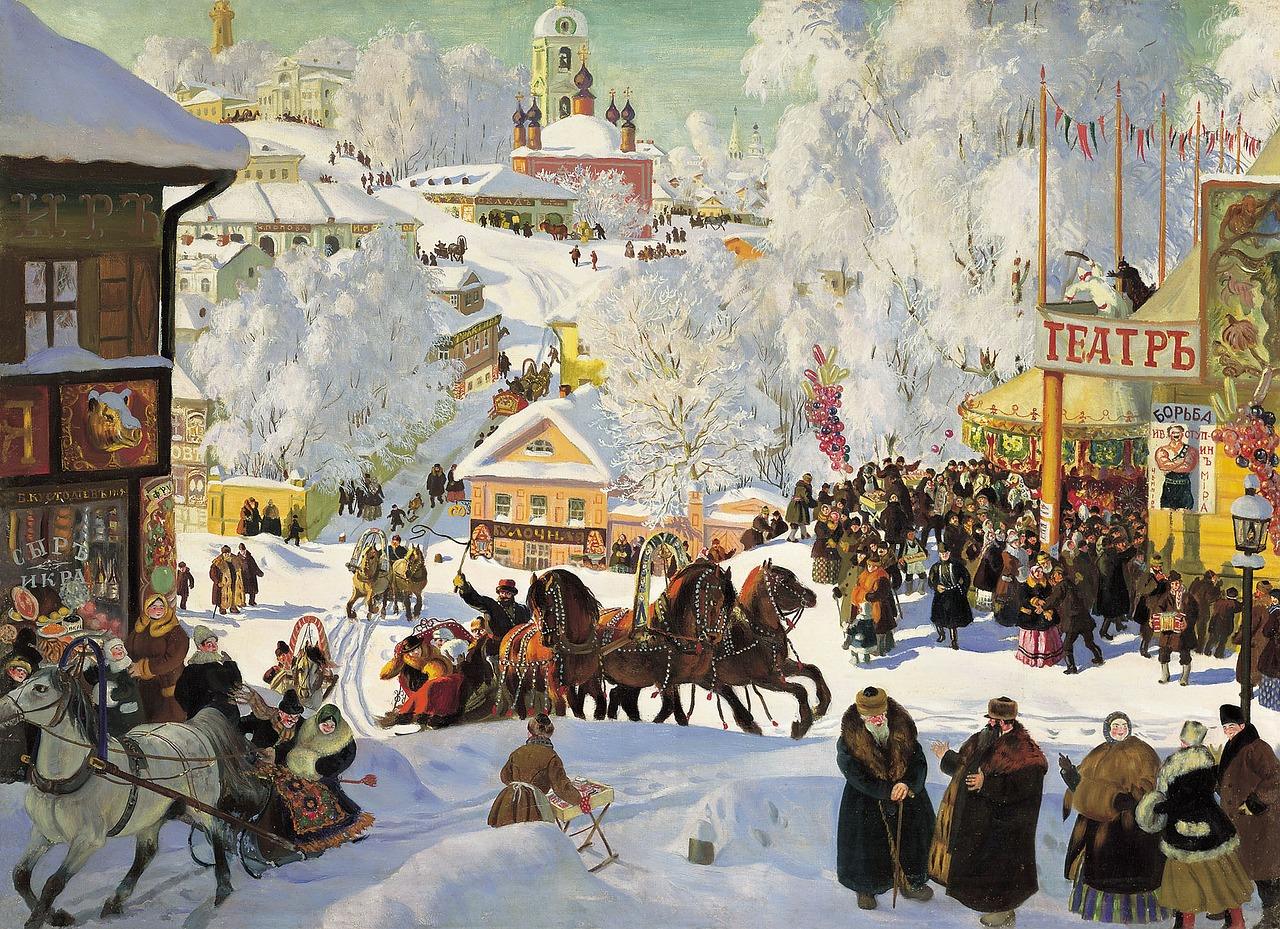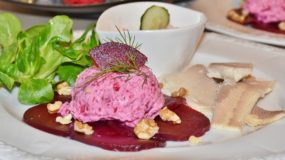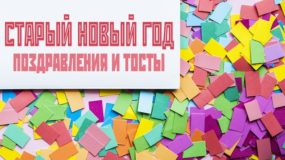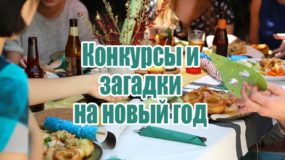The topic of today's conversation will be Pancake Week and Great Lent in 2020. It was not without reason that I decided to talk about it, since many residents of our country are interested in when the listed events will take place in 2020.
What is the number of Shrovetide in 2020
February 24 - March 1, 2020
Shrovetide dates by year:
2016: March 7 - March 13
2017: February 20 - February 26
2018: February 12 - February 18
2019: March 4 - March 10
2020: February 24 - March 1
2021: March 8 - March 14
Shrovetide is the oldest holiday among the Slavs. This merry triumph managed to go through the centuries and convey to our days the traditions of ancient culture. Shrovetide is included in the list of major church holidays.
Maslenitsa has a different date each year. It depends on the date of Lent, the beginning of which is determined by the date of Easter, which is shifted annually. Here is an interesting chain.
According to the Orthodox calendar, in 2020, the beginning of Maslenitsa falls on February 24th. Until March 1, numbers can be given fun and eat holiday treats.
History and symbolism of Shrovetide
In the week preceding Lent, they are excluded from the diet meatgiving preference to dairy products, including butter, sour cream and milk - the main ingredients for the preparation of delicious and rosy pancakes. The purpose of mass walks is the expulsion of winter and the awakening of spring.
According to historians, in Russia Maslenitsa had a close relationship with the spring solstice. After coming to the Russian land of Christianity, this triumph precedes Lent.
With the adoption of Christianity, traditions and laws changed, but Maslenitsa continued to exist. Tsar Alexei tried to calm his subjects, but the royal decrees and instructions of the patriarchs failed to force people to abandon the hospitable and revelry fun.
Tsar Peter was a true admirer of various amusements. On Maslenitsa, he wanted to organize a grand procession in the capital, but a strong snowstorm accompanied by a great frost prevented this.
When Catherine II ascended the throne, a large-scale costume costume procession was organized at her Maslenaya week by her order. For several days, a masquerade procession was moving around the city, representing vices of people, including embezzlement and red tape of officials.
Over time, the "rolling fun" is greatly improved. In large areas, began to build slides of wood and beautiful pavilions. Fun fairs were organized all over the place where sweets were sold, delicious pies, baked apples, nuts, flavored tea and roasted pancakes.
In the villages there was no place for big booths. At Maslenitsa, local residents took an active part in the capture of the snowy city, which was a large fortress erected from snow. My favorite pastime was sledding.
At Shrovetide, people called on the sun god Yaril, who banished winter and aroused spring. All week the housewives cooked rosy pancakes that strongly resembled a warm sun. It is not surprising that they still remain the main symbol of the holiday.
Shrovetide has another symbolism. We are talking about a scarecrow named Maslen. It was made of straw and dressed in a bright outfit. On the last day of Shrovetide week, the doll was burned. She personified the cold winter, for the expulsion of which fire was used.
Holiday menu on Shrovetide
As part of the Pancake Week, fish, dairy and mushroom treats were on the table. Of course, during the holidays no one ate meat dishes.
In honor of the holiday, a large cake called a henhouse was necessarily prepared. Kids were delighted with sweet brushwood. At the beginning of the second half of Shrovetide week, cooks baked larks. These bird-shaped pastries symbolized the arrival of spring.
Without a doubt, pancakes were the main holiday dish of Shrovetide, for the preparation of which they used flour and various fillings - caviar, mushrooms, cottage cheese, jam.
As for me, Maslenitsa is a fun and colorful holiday, in which everyone is obliged to participate. If you have not had to do this before, take part in the festivities.
When Lent begins in 2020
March 2 - April 18, 2020
Dates of Lent by year:
2016: March 14 - April 30
2017: February 27 - April 15
2018: February 19 - April 7
2019: March 11 - April 27
2020: March 2 - April 18
2021: March 15 - May 1
Lent is a comprehensive spiritual practice, accompanied by spiritual and bodily limitations of a person who believes and honors the traditions of religion. In this part of the article, you will find out when Lent begins in 2020. If you are a Christian, this will allow you to begin oneness with God in a timely manner.
Fasting provides for more than just dietary restrictions. This includes a number of additional spiritual practices that are associated with prayer and opposition to worldly passions.
Great Lent is considered the strictest fast in the life of an Orthodox person who precedes Easter. One and a half months of abstinence from contamination, products and benefits is the key to deep cleansing of the body and soul.
In 2020, March 2 was marked by the beginning of Lent, it runs until April 18.
Many people perceive fasting as a diet. Of course, five decades of limited nutrition allow you to get rid of fat deposits and ensure the normal functioning of the body, but special attention should be paid to cleansing the soul of sins, harmful thoughts and evil.
Throughout life, people experience bad feelings, including resentment and envy. In Orthodoxy, these feelings are sinful. Lent allows believers to eliminate sorrows and ailments, tune in to positive, especially if they are regularly given to prayer.
For seven weeks of fasting, it is recommended to refrain from animal products, pay attention to food of a spiritual nature. It is not recommended that Christians who observe this rite during fasting participate in recreational activities, start a family or get married. Even celebrating a festive date wedding anniversaries or anniversary, it is better to postpone.
Observance of Great Lent allows you to push aside the unnecessary and understand that there are a lot of no less significant things in the world. It helps to get closer to God.
Nutrition during Lent
If in 2020 you decided to fast for the first time, I want to warn that Lent is a serious test, which, thanks to a combination of nutritional restrictions, will help cleanse the body, improve metabolism and the state of the blood.
Please note that fasting is not a health-improving diet. Spiritual cleansing is important, which involves repentance and doing good deeds.
What is impossible during Lent
- Animal products, including fish, milk and meat.
- White bread, sauces and mayonnaise, pastries and sweets. More in this article.
What is possible during Lent
- No limits plant products. These include dried fruits, herbs, vegetables and fruits.
- It’s allowed to eat pickles, including pickled tomatoes and cucumbers, sauerkraut.
- Mushrooms, nuts, brown bread and crackers.
Meals by day of the week
- Mondays, Wednesdays and Fridays are characterized by dry eating. It is allowed to eat unheated food without adding oil. It can be stewed fruit, vegetable salad, bread and water.
- On Tuesdays and Thursdays it is allowed to eat hot meals without oil, including cereals, vegetable stews and lean soups.
- On weekends, a moderate amount of vegetable oil can be used.Detailed menu in this article.
During fasting, you can eat once a day in the evening. Such a regime is far from suitable for every person, therefore it is allowed to spend several meals in small portions.
In conclusion, I add that people who switch to a fasting table may experience a feeling of hunger. This feeling is due to a deficiency of vitamins, proteins and amino acids. In this case, brewer's yeast will help. They are saturated with protein and vitamins. Note that they have contraindications, consult with your doctor before taking.










